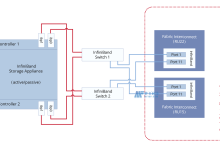linux is a popular open source operating system that is widely used by people from all walks of life. It is designed for both desktops and servers. Linux users are always trying to optimize their system to make it better and faster for their applications. One of the most powerful tools Linux users can use to optimize their system is seq, a command line tool that offers various text manipulation capabilities.
Seq stands for Stream Editor for filtering and transforming text. It is a companion to the standard UNIX tools sed and awk but it has much more capabilities. The main advantage of seq over the other tools is its simplicity and features. Seq allows users to easily manipulate text files and quickly create text-based reports.
Seq can be used to do everything from simple string manipulation (like splitting or joining strings) to complex filtering and transforming operations. It’s also well-suited for working on tabular data in the CSV format. It provides an interactive command line shell, which simplifies the process of writing text- manipulations expressions. To make the most of seq, users must have an understanding of regular expressions and basic shell scripting.
Let’s take a look at an example of how seq can be used. Say we have a text file that contains a list of IDs and prices. We can use seq to extract the IDs by doing:
`seq –delim=’|’ –fields=’1′ infile.txt > outfile.txt`
This command will take the infile.txt and extract the first field (the IDs) and output them in outfile.txt. We can specify a different delimiter instead of the default ‘|’ or use multiple fields by listing them within the–fields option.
Seq also provides options like head, tail and sort commands to allow users to further manipulate the text output. It also supports expression-based filtering. For example, we can use the –regex option to filter for only numeric values like so:
`seq –regex=’^\d+$’ infile.txt > outfile.txt`
This will extract all the values from infile.txt that are only numbers and create outfile.txt from them.
In conclusion, seq is a powerful and useful command line tool for Linux users to optimize their system performance. It has a wide range of features that make text manipulation easy and fast. For users to be able to best utilize seq, they should have a good understanding of regular expressions and basic shell scripting.

 国外主机测评 - 国外VPS,国外服务器,国外云服务器,测评及优惠码
国外主机测评 - 国外VPS,国外服务器,国外云服务器,测评及优惠码












